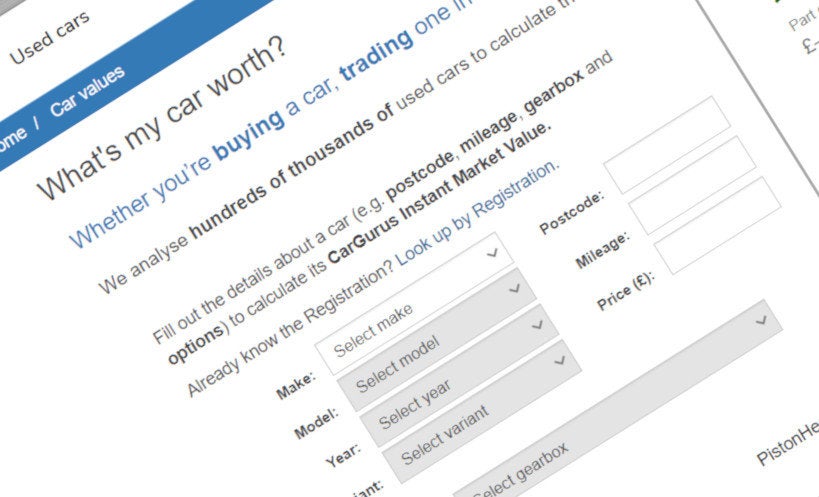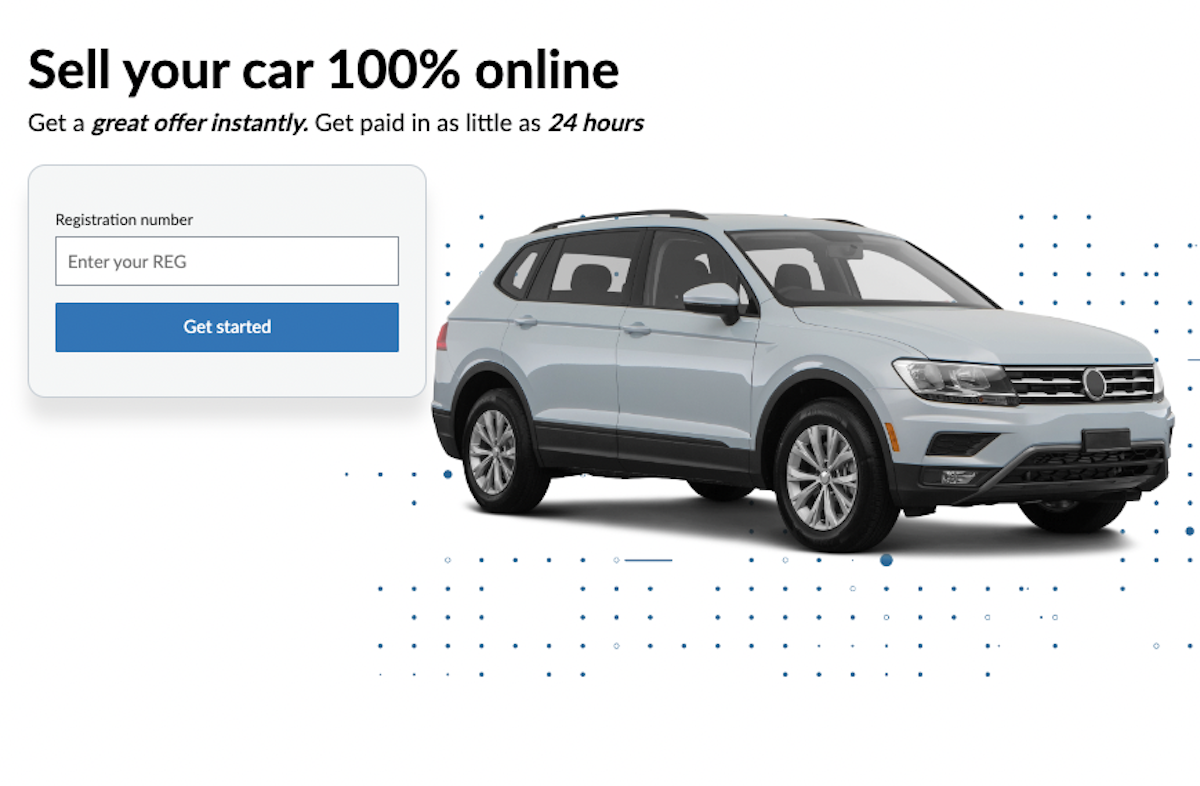When it comes time to buy a new or used car, you’ll probably need to consider what to do with your old one. Naturally, you might well want to get the most money possible when you sell your car, and that could mean selling it yourself - also known as a private sale.
When it comes to selling cars, however, you rarely get something for nothing. Which is why w've put together this step-by-step guide, where you’ll find all the information you need to judge whether the time and effort of a private sale really is worth it.
How to Sell Your Car Privately
- Step 1: Decide Where to List Your Car for Private Sale
- Step 2: Find How Much Your Car is Worth
- Step 3: Weigh Up the Time and Effort
- Step 4: Beware Scammers
- Step 5: The Test Drive
- Step 6: Negotiating on Price
- Step 7: Accepting Payment
- Step 8: Writing a Receipt
- Other Points to Consider
- What About Selling Your Car Online?
- Verdict: Is it Worth Selling Your Car Privately?
Step 1: Decide Where to List Your Car for Private Sale
Selling a car used to involve sticking a notice in its window and an advert in your local post office – or possibly purchasing a printed ad in Auto Trader magazine. However, the proliferation of online sites like PistonHeads, eBay, Facebook Marketplace or Gumtree means private sellers can now reach a much wider audience with a classified ad for just a little additional effort, with some car-selling sites not even charging to list your car. You can also try telling friends and family on social media that you have a car for sale.
However, even with all of these technological advances, don’t rule out that simple ‘for sale’ sign in the window, because you never know when an interested buyer might see it.
Step 2: Find How Much Your Car is Worth
The internet is also invaluable when it comes to understanding your car's value. You can do this manually by searching for similar cars for sale, or using one of the many car valuation tools available. We’d recommend letting CarGurus do the hard work for you when it comes to online valuation. Simply enter your car’s details into our Instant Market Value tool, which instantly analyses all similar vehicles listed for sale and reveals what your car would be advertised for if it was at a dealership. This provides you with a benchmark upper asking price.
To get a benchmark minimum for the value of your car, try offering the car to a local dealer specialising in that particular make. The best price you can realistically achieve for a private sale will be somewhere between its CarGurus Instant Market Value (that is, what somebody would expect to pay from a dealership) and its part-exchange valuation from a dealer. What’s important is choosing a price you’d be happy with and sticking to it. It can be all too easy when selling a car to become greedy, but if asking for a higher price ultimately slows down the sales process, it almost certainly isn’t worthwhile.
Step 3: Weigh Up the Time and Effort
When you part-exchange a car, you can simply drive it to the dealer and hand over the keys with minimum hassle. Selling a car privately requires significantly more preparation, so it can become quite time consuming. For a start, you should gather together all of its manuals, service booklets, old MoT certificates and service history invoices, plus any spare keys. Spare Key aside, a dealer taking a part exchange might not care too much about these things, but somebody buying privately certainly will.
You’ll also need to improve the car's condition as much as possible. Make sure you clean the car to a high standard including exterior bodywork and vacuuming the interior, using glass cleaner for the windows, and applying a dedicated wheel cleaner to get those alloys gleaming. If you don’t have the time or inclination to do this yourself, you can take it to a specialist, but you’ll need to pay upwards of £25 for a thorough job, which will eat into your profit margin.
Also, don't forget to make sure there's no outstanding finance on the car from a lender before you sell it. If there is, read our separate guide on selling a car that still has outstanding finance.
Step 4: Beware Scammers
Once you’ve advertised the car, there will be a few anxious hours, days, or maybe weeks (the latter might suggest you’ve got the price wrong) waiting for the phone to ring. Be prepared to answer plenty of questions, and be able to show potential buyers the car at a time that suits them. Sad as it is to say, you should also be prepared for time wasters, such as people who make appointments to view your car but never show up or come along only to make a silly offer.
Watch out for scams, too. Beware of anyone wanting to pay with online payment systems like PayPal, and would-be fraudsters who want to pay by cheque, especially if they want to take the car before the cheque clears into your bank account.
Step 5: The Test Drive
Understandably, most prospective buyers will want to test drive your car before making an offer to buy it. This is a very standard part of the process, but it is imperative that the buyer has the proper car insurance before you hand them the keys. Ask to see a certificate that proves they are covered to drive your car, as well as their driving licence. If they don't have them, offer instead to take them in the passenger seat while you drive.
Step 6: Negotiating on Price
Most car buyers will expect to negotiate on price (wouldn't you?), so be prepared for somebody who is out to haggle a deal. Again, this is where knowing how much you want for the car is really important. Be polite but firm, and remember there’s no point accepting a penny less than you could get as a part exchange.
Step 7: Accepting Payment
When it comes to payment methods, there are a variety of ways to go. Cash is always relatively straightforward, but beware of counterfeit notes. It's a good idea if you can to meet the buyer at your bank so that you can pay the money in immediately and avoid such concerns. Alternatively, a bank transfer could be almost instant, and you can check that the transaction has processed using a banking app.
If you agree to a cheque or banker's draft, get proof of the buyer's name and address, and perhaps a phone number, so you can contact them if there are complications. Keep in mind that a cheque payment could appear in your account pretty quickly, but that doesn't mean that it's cleared. Whichever method you agree upon, never release the car until you've confirmed that the money is in your account.
Step 8: Writing a Receipt
Once you've agreed to sell your car privately, give the new owner a receipt, and keep a copy of it for yourself. This should include the date, agreed price and registration number, as well as the make and model of the car, and the names and addresses of both you and the buyer. Then fill out and send the V5C registration document, or logbook, to the DVLA to notify them of the change of ownership.
Other Points to Consider
There might also be practical considerations. For example, in selling your car privately, is there a chance you could end up with your new car arriving before you’ve sold the old one? If this results in paying for two lots of tax and insurance, it will once again start to eat into any profit you might make over selling your car online or doing a simple part-exchange.
Alternatively, if you need the funds from the sale of your current car as a deposit for its replacement (or to pay off a loan), then you risk creating a gap between selling one and buying another. If that’s the case, try to put a rough cost on any alternative travel arrangements required during this period.
What About Selling Your Car Online?
If you’d like a simpler way to sell your car that isn’t part-exchange, then there’s the option of selling your car to a specialist car-buying service. This includes in-the-metal operations such as We Buy Any Car, or online services such as Motorway or CarGurus’ own online buying service, which operates in partnership with The Car Buying Group.
This is a quick and easy way to guarantee the sale of your car and, in the case of the CarGurus service, you can get an instant quote from simply inputting your car’s service history, its registration number and mileage information.
With that info, you’ll get a free car valuation quote, which will be emailed to you. You can then follow a link to The Car Buying Group’s website, where they’ll ask you a few more details and you can schedule a pick-up time for your car. Once the car’s been collected, you’ll be paid almost immediately via bank transfer.
The advantage of online car-buying services is their supreme convenience and the opportunity to make a quick sale, even if ultimately you might still stand to get a bit more money by selling your car privately.
Verdict: Is it Worth Selling Your Car Privately?
Ultimately there are pros and cons to selling your car yourself. Your job is to determine what price you’d be happy to accept, and then deduct the costs of advertising, preparing the car for sale, and any impracticalities associated with not simply part exchanging it.
After all that, if you still stand to make a sizeable amount more money from a private sale, why not give it a try? You could start by listing it on our sister website, PistonHeads.












